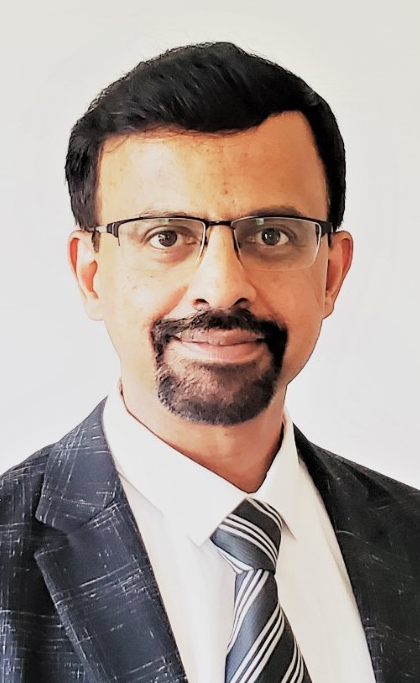What Is Lean Management?
Lean Management is a management philosophy based on the Toyota Production System (TPS). This management philosophy was coined "Lean" only in the 1990s. The objective of Lean Thinking is to eliminate everything that does not add value (i.e. "waste") from the customer's perspective.
The general approach to Lean is learn-by-doing and to foster a culture of continuous improvement. In a Lean organization, we develop a value stream for each service family, make the product or service flow, and then continuously improve our process as we manage towards perfection. To achieve this goal of managing to perfection, there is a vast range of Lean techniques and tools available, which have been established and tested with numerous case studies. Examples of Lean frameworks include Value Stream Mapping (VSM), 5S, Kanban, Kaizen, Poka Yoke, Gemba Walk, Hoshin Kanri, Plan-Do-Check-Act (PDCA), Root Cause Analysis (RCA), Heijunka, etc.
The Lean Enterprise system is built on 2 primary pillars:
- Just-in-time (Pull System): Delivering only what is needed, when it is needed, and in the amount needed.
- Jidoka (Quality): The ability to stop the process in the event of problems, e.g. missing information or quality issues. Jidoka helps prevent the passing of defects, helps identify and correct problem areas.
There are numerous business and organizational benefits to adopting a Lean organization. Some of these benefits include improved customer satisfaction (both internal and external), improve qualify of products or services, improved employee productivity, reduced paperwork, reduced employee stress, and more engaged employees.
Value vs. Waste
A couple key concepts in Lean Thinking are that of "value" and "waste." Activities can be categorized into those that add value and those that don't. Value-added activities increase the form or function of the product or service. They are activities the client or customer is willing to pay for.
On the other hand, non-value activities do not add form or function or are not necessary. They do not benefit the client or customer. They are things that are not necessary to run the department. These activities, in Lean terms, are called waste.
This 32-page presentation explains the Lean Management philosophy, based on the Toyota Production System (TPS). Learn to eliminate everything that does not add value in the customer's eyes. Download a FREE PowerPoint on Lean Management.
The goal of Lean is to eliminate this waste. In fact, Lean Management can be defined as a systematic method for the elimination of waste within a business process.
Waste can be categorized into 8 types:
- Over-production. Producing more than what the customer needs. Examples include creating reports that no one needs or making extra copies, exceeding scope of agreement, purchasing items before they are needed (e.g. items on sale), etc.
- Waiting. Employees waiting for another process or a machine/tool. Examples include waiting to be served, waiting for instructions/approvals/information, equipment/System downtime, etc.
- Rework. Reprocessing or correcting work. Examples include data entry errors, poor process controls, incorrect schedules and information, etc.
- Transportation. Moving product from one place to another. Examples include poor workplace organization, insufficient use of tele-/video-conferencing, double or triple handling, etc.
- Inventory. Building and storing extra services/products the customer has not ordered. Examples include e-mails waiting to be read, business documents waiting to be worked on, too many office supplies, etc.
- Motion. Extra physical/mental motion that doesn't add value. Examples include searching for information on internet/computer, handling paperwork, unnecessary motion due to poor ergonomics or office layout, etc.
- Over-processing. Adding excess value when the customer does not require it. Examples include repeated manual entry of data, excessive documentation, multiple formats for the same information, etc.
- Intellect. Not using employees to their full intellectual contribution. Examples include not engaging or listening to employees in finding solutions, lack of best practice sharing, mismatched work functions with skill sets, etc.
What Lean Management Is Not
These are concepts that Lean absolutely does not represent:
- Laying off employees by the bus load
- Offshoring or outsourcing
- Delivering less or working harder
- Being mean to people
- Automation or implementing an IT system
- Narrow focus on unit cost management
- Just another set of "extracurricular activities"
To better understand how Lean differs from conventional management philosophy, let's look at several examples comparing these schools of thought.
|
|
|
|---|---|
|
|
|
|
|
|
|
|
|
|
|
|
|
|
|
|
|
|
|
|
|
Lean Management Model
The Lean Management Model aligns all 5 pillars of Lean under one "Lean" umbrella:
- Total Productive Maintenance (TPM)
- Total Quality Management (TQM)
- Total Service Management (TSM)
- Total Human Management (THM)
- Total Flow Management (TFM)
This article provides a very rudimentary introduction to Lean Management. To develop a more in depth understanding, we suggest downloading a free copy of the 32-slide Introduction to Lean Management presentation and consulting the business training guides below.
Source: Lean Thinking 101, Eliminate Waste, Create Value, Operational Excellence Consulting [source material]
Lean Management Subject Matter Experts
Flevy's document contributors are Subject Matter Experts in their respective industries. Below, we have showcased our authors that specialize in Lean Management and Lean Six Sigma. Each of these authors and their respective consulting firms have developed training guides on Lean Six Sigma.
Allan Ung, founder of Singapore-based Operational Excellence Consulting, has over 30+ years of experience playing global and regional roles leading Lean, Six Sigma, and TQM initiatives in global organizations such as IBM, Microsoft, Underwriters Laboratories, and Infineon Technologies.
His firm provides corporate learning programs and management advisory services to assist clients to achieve breakthrough in business performance and effectiveness. Operational Excellence Consulting works with government bodies, multinational corporations, and small and medium-sized enterprises of a wide spectrum of industries. Some of their valued clients include Analog Devices, Borouge, Micron Technologies, B|Braun Medical Instruments, Panasonic, NEC, NileDutch, CLS Communication, Elsevier, Wow Education, Ministry of Social & Family Development, Temasek Polytechnic, Defence Science & Technology Agency, Immigration & Checkpoints Authority, etc.
Frank Adler, co-founder of US-based Operational Excellence Consulting, has over 25+ years of international executive leadership experience in General Management, multi-site Operations & Supply Chain Management, Quality & Customer Support Management, and Operational Excellence, Lean Management & Six Sigma.
Frank is a certified and experienced Lean Six Sigma Master Black Belt, with a proven track record of implementing these methods, concepts and tools in various organizations and industries. He holds a in Mathematics and Physics from the Freie University of Berlin (Germany) and a in Applied Mathematics and Industrial Economics from the Helsinki University of Technology (Finland).
His firm provides assessments, training solutions, kaizen event facilitation, and implementation support to organizations that are committed to achieve superior performance through Operational Excellence.
Vishnu Rayapeddi, founder of Productivity Solutions, is a management executive with over 30+ years of experience in End-to-end Supply Chain Management, Manufacturing Operations Management, Strategic Planning, Business/Operational Excellence, and Process Re-engineering/Improvement.
Vishnu is a pioneer in Lean Management, combining the power of Lean Thinking, TOC, Six Sigma, TQM, TWI, Balanced Scorecard, cGMP, and other best-class methodologies like DMAIC, Value Stream Mapping, Root Cause Analysis, 5S, Quick Changeovers, Quality and Reliability, TPM, Visual Management, Standard Work, Pull, JIT, and Kanban.
Vishnu has worked in Pharma Manufacturing and FMCG Supply Chain environments for over 21 years with some of the most reputed organisations in New Zealand and India, including Unichem Laboratories, Aristo Pharmaceuticals, Intas Pharmaceuticals, Standard Medical & Pharmaceuticals Ltd, Fonterra, George Weston Foods (part of AB Foods) and others. In the past 6 years, Vishnu has been providing consulting, training, coaching and mentoring services in the Operational Excellence arena.
Hemant Gham, founder of QMaxima, is an executive with over 20+ years of strategic and program-level experience leading Business Transformation, Performance Improvement, Lean Six Sigma, Change Management, and Customer Experience initiatives with over $40M+ contribution to the bottom line.
Hemant is a Lean Six Sigma Master Black Belt with an extensive track record applying Lean Six Sigma principles, Change Management tools, Standardization and Agile/Product Management techniques. He has trained 300+ Green Belts/Black Belts who have become successful leaders.
His firm QMaxima helps organizations focus and achieve productivity gains, stable operations, reductions in cost through improvements, standardize processes and improve workflows. QMaxima offers a wide range of services from Lean Six Sigma Deployment to Kaizen workshops to Custom Tool Development.
Flevy is the world's largest knowledge base on Lean Management.

Leverage the Experience of Experts.
Find documents of the same caliber as those used by top-tier consulting firms, like McKinsey, BCG, Bain, Deloitte, Accenture.

Download Immediately and Use.
Our PowerPoint presentations, Excel workbooks, and Word documents are completely customizable, including rebrandable.

Save Time, Effort, and Money.
Save yourself and your employees countless hours. Use that time to work on more value-added and fulfilling activities.
These best practices are of the same caliber produced by top tier consulting firms, like McKinsey, Bain, and Deloitte. Most documents were developed by seasoned executives and consultants with 20+ years of experience. The training guides selected below have all been developed by management consulting firms specializing in Lean Management and Lean Six Sigma. The select training guides below have all been developed by the subject matter experts showcased above.
|
| The office, by any name, is a paperwork factory. To become a Lean enterprise, office activities must fully support shop-floor manufacturing operations to eliminate waste. The [read more] |
| Value Stream Mapping (VSM) is a lean management technique used to analyze the flow of materials and information currently required to bring a product or service to a [read more] |
|
| The PDCA cycle, also known as the Deming Cycle or the Shewhart cycle, is a four-step continuous improvement process that is widely used in quality management, business [read more] |
| [NOTE: Our Lean Manufacturing presentation has been trusted by an array of prestigious organizations, including industry leaders such as Apple, DHL, Cummins, [read more] |
|
| The 8D Problem Solving Process has become a standard in many industries as problem solving or improvement process, as internal Corrective Action Request (CAR) Process or [read more] |
| The Gemba Walk Slide Deck is a comprehensive and professionally designed resource that equips leaders and teams with the tools and knowledge to drive meaningful improvements [read more] |
|
| Visual management is a powerful tool for conveying important information in a simple and easy-to-understand format. This practice involves displaying information in a visual [read more] |
| [NOTE: Our Lean Office presentation has been trusted by an array of prestigious organizations, including industry leaders such as Apple, DHL, Cummins, Stryker, [read more] |
|
| In manufacturing operations, standardization is a key element in eliminating process waste and excess inventory and in achieving balanced and synchronous production. Standard work [read more] |
| This comprehensive slide deck is designed specifically for senior leaders, strategists, and cross-industry professionals who aim to drive transformative growth and operational [read more] |
|
| The Lean Six Sigma - Process Risk Analysis & Mistake-Proofing Training Module provides you with a step-by-step approach, as well as examples, exercises, and templates, to analyze [read more] |
| The TWI Job Instruction (JI) program trains supervisors in how to instruct a person to perform a job correctly and safely; and to be productive as quickly as possible, [read more] |
|
| Please read the Preview Document "Lean Six Sigma 50 Tools Bundle Information Booklet" for complete details. The 50 Lean Six Sigma Tools file can download to your desktop [read more] |
| The Lean - Standard Work Training Module includes: 1. MS PowerPoint Presentation including 113 slides covering - History of Lean Manufacturing, - The Five Lean [read more] |
|
| This presentation has 114 slides and and comprises of the following: * What is Kaizen? * The 10 Commandments of Continuous Improvement * Value versus Waste concept * The 7 [read more] |
| This Green Belt, Black Belt Training Design Aid Bundle includes: 21 PowerPoint Presentations 1630+ Slides 74 Minitab / Excel-based Exercises Use it as-is or to improvise [read more] |
|
| Lean 5S Visual Workplace Organization describes a systematic approach how to organize a workspace or area for efficiency and effectiveness by identifying and storing the items [read more] |
| This presentation has 46 slides and consists of: * What is culture and definitions * What is organisational culture? * How to develop OC * Leaders & Leadership * Great [read more] |
|
| Lean-MBA stands for Lean Management Business Architecture. In essence it is the business architecture required to successfully manage Lean. The term "Lean" to me is a state of [read more] |
| This is a 1 day presentation on Lean with over 100 slides, It also provides some self-assessment tools which can be used for group discussions. Define Vision & Mission What [read more] |
Lean Management Efficiency Improvement for a Growing Tech Firm
Scenario: A rapidly growing technology firm in the United States has been facing challenges in managing its operational efficiency.
Scenario: An ecommerce company streamlined its operations using a Lean Supply Chain strategy framework to tackle inefficiencies.
Growth Strategy for Agritech Company in Precision Farming using Value Stream Mapping
Scenario: An emerging agritech company specializing in precision farming faces operational inefficiencies and scalability issues, despite the growing demand for sustainable agriculture.
Lean Manufacturing Overhaul for Food & Beverage Producer in North America
Scenario: A mid-sized Food & Beverage producer in the North American market is grappling with inefficiencies across its manufacturing operations.
Lean Process Enhancement in Telecom Infrastructure
Scenario: The organization is a leading provider of telecom infrastructure services, grappling with inefficiencies in their Lean processes.
Lean Management Transformation for D2C E-commerce Apparel Brand
Scenario: A direct-to-consumer (D2C) e-commerce apparel firm is grappling with the challenges of scaling operations while maintaining efficiency.
Lean Transformation in Luxury Retail Sector
Scenario: The organization, a high-end fashion retailer, is struggling with operational inefficiencies that have led to increased lead times and inventory costs.
Lean Enterprise Transformation for Power & Utilities Provider
Scenario: The company is a regional power and utilities provider facing operational inefficiencies and escalating costs.
Lean Manufacturing Overhaul for D2C Fitness Equipment Provider
Scenario: A firm specializing in direct-to-consumer fitness equipment is facing challenges in maintaining its operational efficiency.
Lean Management Improvement for a Global Retail Organization
Scenario: A global retail organization, with a network of stores across five continents, has seen a substantial increase in operations' complexity as it tries to maintain its competitiveness.
Lean Transformation for Boutique Ecommerce Retailer
Scenario: A mid-sized ecommerce retailer specializing in sustainable goods has encountered operational inefficiencies that are impacting customer satisfaction and bottom-line growth.
Lean Management Advancement for E-Commerce in High-Tech Sector
Scenario: A high-tech e-commerce firm is grappling with operational inefficiencies and waste across its supply chain and customer service processes.
Explore all our resources on Lean Management





